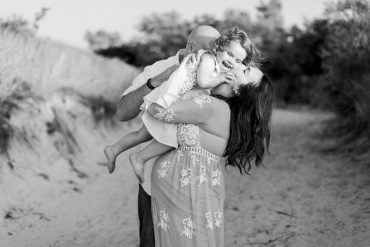By Jill Cedar
What does your stress look like?
Our bodies and brains are wired to react to high stress situations as a safety net. If our brain perceives a threat, it signals the amygdala, body’s “alarm” system, which tells our body to act without thinking. The amygdala responds to situations with the fight, flight, freeze response. This is to protect us, but our stress receptors cannot distinguish between real dangers or false dangers. In everyday parenting, our stress response often gets triggered unnecessarily by events that are not actually life threatening. Our bodies are reacting to our kid spilling cereal all over the floor in the same way we would react if we were being chased by a bear.
Depending on your childhood experiences and memories, your stress response may be triggered more easily than another person. When our stress receptions are triggered, we have difficulty thinking clearly and being attentive to people around us. We are unable to be thoughtful in our responses, and have trouble staying focused, and our ability to solve problems is diminished.
Dr. Dan Siegel, a clinical psychologist who studies the brain explains that during stressful parenting moments we may “lose control” or “flip our lid” and let our emotions control our reactions. When we “fly off the handle,” it happens so quickly and we aren’t thinking about how our children are perceiving us. Our reactions can be very scary to kids. Also, we are modeling that this is how grown ups react to stress. If we choose to be more mindful by pausing before responding, we can teach kids they too can pause and choose to respond instead of react.
What does mindfulness mean in parenting?
Managing our own emotions and behaviors is the key to teaching kids how to manage theirs. It is the reason airlines tell us to put our oxygen masks on before you can put on your child’s mask. You need to be regulated before you can model regulation for your child. Unfortunately, when you’re stressed out, exhausted, and overwhelmed, you can’t be available for your child.
Mindful parenting does not mean being a “perfect parent” and is not something you can fail at. It is not easy and it takes practice, but like many aspects of parenting, some days are good and some are bad and you can always try again. You may forget to be mindful, but the second you realize you are distracted, it is an opportunity to make a different choice – the choice to be present.
Mindful parenting means that you bring your conscious attention to what’s happening, instead of getting hijacked by your emotions. Mindfulness is about letting go of guilt and shame about the past and focusing on right now. It’s about accepting whatever is going on, rather than trying to change it or ignore it.
Being a mindful parent means that you pay attention to what you’re feeling. It does not mean that you will not get angry or upset. Of course you will feel negative emotions, but acting on them mindlessly is what compromises our parenting.
Benefits of mindful parenting:
- You become more aware of your feelings and thoughts
- You become more aware and responsive of your child’s needs, thoughts and feelings
- You become better at regulating your emotions
- You become less critical of yourself and your child
- You become better at standing back from situations and avoiding impulsive reactions
- Your relationship with your child will improve
How to practice mindful parenting
Think about a situation where you got upset or angry at your child-one where you reacted automatically because that is what most of us do when difficult thoughts, feelings, or judgments arise. In stressful situations when our emotions are easily triggered, it’s hard to be the best version of ourselves. You can expect that your child will find those triggers.
In order to make the choice to change your behaviors, you first have to become familiar with your “hot spots” and emotional triggers. Hot spots are certain times of your day where we are more vulnerable and less emotionally available. We may be feeling stressed, tired, overwhelmed or helpless, or we feel preoccupied with work or marriage.
Emotional triggers are feelings or judgments from your own childhood which may arise when your child does a specific action:
- Your child behaves in a way that clash with your beliefs. Example: Your kid throwing food in a restaurant or grabbing all the toys in a store, which makes you feel embarrassed or shameful.
- Your child’s behavior may evoke a childhood memory and response. Example: Your child not being on the academic level you think they should be and you feeling like you failed as a parent because when you got a bad grade, your parents said it wasn’t good enough.
- Your child’s behavior may evoke a traumatic state or event. Example: If you broke your arm climbing a jungle gym as a kid and you are scared every time your kid goes to the playground.
- Your child’s behavior activates the lens of fears and desires. Example: if one of my kids wakes up the other kid during the night, no one is sleeping and everyone is crying and I fear I have no adult time and I’ve completely lost the old me now that I’m a parent.
In order to feel a sense of control over your emotions, you first have to be able to recognize and anticipate what types of situations are likely to trigger hot spots and emotional responses in you.
Kristin Race, PHD and author of Mindful Parenting: Simple and Powerful Solutions for Raising Creative, Engaged, Happy Kids in Today’s Hectic World states that there are key factors to mindful parents.
See next page for three key factors to mindful parenting…











